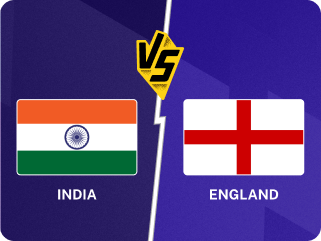
The Wisden Almanack match report of the second England-New Zealand Test in 1949, played at Lord’s.
On a pitch which seemed to improve the longer the match progressed, there appeared little hope of a definite result, but the game was made memorable by an incorrect declaration on the part of F. G. Mann, the England captain, and a brilliant innings of 206 by M. P. Donnelly, the New Zealand left-hander.
Shortly after six o’clock on Saturday, with England’s total 313 for nine wickets, Mann closed the innings and New Zealand in fifteen minutes scored 20 without loss. At the time he did not realise his mistake, but on Sunday he issued the following statement:
“When I declared the England innings closed on Saturday evening I thought that the experimental rule which allows a declaration to be made on the first day of a three-day match applied to the present series of Test Matches. I regret very much that I was wrong in this respect, but I am very glad indeed that we did not in fact gain any advantage from the declaration.” An official announcement from Lord’s stated that as no protest was made at the time the match would carry on as if no breach of regulations occurred.
Because of an injured leg, Washbrook stood down from the England side, his place being taken by Robertson. Wharton, also hurt, withdrew after being selected, and Watkins deputised. A further change was Gladwin for Bedser. New Zealand fielded an unchanged eleven.
So lively was the pitch for the first three hours that it began to look as if Mann was not so fortunate in again winning the toss as was at first considered. The New Zealanders bowled and fielded magnificently, and England lost their first five wickets for 112 runs. Cowie, during a long spell, maintained a perfect length at a fast pace and several times he made the ball lift nastily.
Eventually the pitch eased and Cowie tired in the oppressive heat. The change in England’s fortunes came when Bailey joined Compton. Fortunate to receive two loose balls down the leg side which he turned for four apiece immediately he went in, Bailey showed complete confidence and for a long time he overshadowed Compton. Bailey continued to punish anything loose, mainly by going down on one knee and sweeping the ball hard to the square-leg boundary. Ten 4’s came in his first 50 made in sixty-seven minutes. With his side in danger, Compton concentrated on wearing down the attack, and not until England were out of trouble did he take the slightest risk. Then he brought into play his wide range of strokes and scored much faster than his partner. Bailey was unlucky to miss his first Test hundred, for with only seven wanted he cut a ball on to the wicket-keeper’s foot, whence it rebounded into the hands of second slip. His splendid innings lasted two and a half hours and contained sixteen 4’s.
The stand of 189 was a record for the sixth wicket in Test Matches between the two countries. Compton, who left six runs earlier than Bailey, stayed three and three-quarter hours for 116, which included eleven 4’s. After the big stand had been broken, three further wickets fell for 12 runs, and Mann, not wishing to waste any more time, decided on his declaration. His attempt to secure a wicket before the close failed, Sutcliffe and Scott were not content merely to play out time, but scored readily off loose bowling.
On Monday, Sutcliffe and Scott carried their partnership to 89, Sutcliffe showing delightful form for an hour and a half. With this stand broken, the England bowlers met with reasonable success for a time, and at lunch, with the New Zealand total 160 for four, the game stood in an even position. Then Donnelly took complete control of the attack and, with most of the other batsmen giving him good support, the game swung round in New Zealand’s favour. England claimed only one wicket between lunch and tea, that of Smith. Donnelly was quite content to wait for the loose ball and batted much more cautiously than usual. He took three and a half hours to complete his first hundred, but on Tuesday he changed his style completely and in under an hour and a half he obtained 80 out of 112. Altogether he batted five minutes short of six hours, and his 206, made out of 347, contained twenty-six 4’s. His innings was the highest for New Zealand in any Test Match. Powerful pulls and neat late cuts brought him a large number of his runs and he made no mistake until, after passing 200, he hit out at every ball. Rabone, during a seventh wicket stand of 78, and Burtt, who helped to add 85 for the eighth partnership, gave Donnelly most help. New Zealand’s total of 484 was the highest by either country in England.
Facing arrears of 171, England soon averted any danger of defeat, Hutton and Robertson scoring 143 together in the best first-wicket stand for their country against New Zealand. England went ahead for the loss of Hutton, and with the game safe the remaining play was of little account. Edrich helped Robertson put on 73. Compton and Robertson were out to successive balls, and Watkins just failed in an attempt to complete 50 before the close. Robertson batted three and three-quarter hours and hit one 6 and eleven 4’s.








